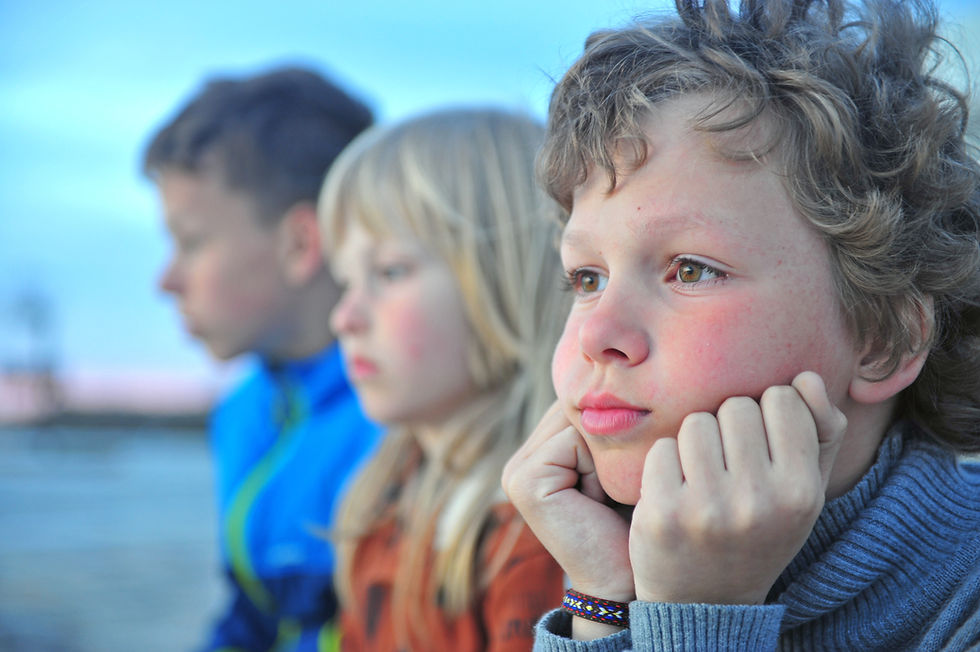Mara* froze as her husband yelled at her. Something small had caused her husband to fly into a rage, breaking things and waking up their child. It had been several years of this and she was used to it but still didn't know what to do.
"Why don't you just leave him?" her friend later asked.
Roy felt nauseated as he exited the vehicle. He'd heard a dog barking in the distance and it brought back memories of a prior painful experience. He slowly backed up into the truck.
"Why are you sitting there? We need to get this job done," his coworker urged.
Julia stared blankly at the customer as he hurled passive aggressive comments at her because his demands weren't met quickly enough. With a blank stare on her face, she went to a break room and stared at the wall. She couldn't hear or understand much of what anyone said to her after that; the whole day had been too much like when she was growing up. She went home and slept for two days straight.
"Why can't you just suck it up?" her mother later demanded to know.
When we've experienced trauma, our brains become "wired" to be more aware and reactive to danger. We're going to enter fight, flight, freeze, or fawn (people-pleasing) mode more easily than others who haven't had these experiences or the resiliency factors that help us overcome overwhelming situations. If the situation is even more than we can handle, we'll basically hit dorsal vagal (parasympathetic nervous system) shut down, or "possum mode" (where your body basically wants to "play dead" when you can't outrun or overcome your problems at that time).
This is especially true if we have experienced traumatic situations in childhood. From my background, I use "trauma" a little loosely: It's anything that threatens your sense of survival. In the past, we've seen PTSD occur when someone's experienced life-threatening events (e.g. war, assault), but C-PTSD can happen over a series of small events that aren't so obviously life-threatening, but still damaging.
For example, I've had numerous clients talk to me about growing up with parents who basically imparted the message that the child was a nuisance, a waste of time, and didn't deserve the food or goods they were receiving (whether the kid complied with their wishes or not). So many kids walked on eggshells to please the adults in their lives, to be "good enough."
As adults, they often feel as though they don't have the right to exist.
There are resiliency factors which can prevent this - the #1 being (according to research) that a child needs at least one caring adult in their lives who will accept them and guide them through difficult circumstances with compassion (and maybe even caring detachment when the child needs to learn things for themselves) - but someone whom the child knows they can go to and be safe with.
Being able to feel safe and attached to others is a survival mechanism that is not only rooted in our physiological and biological needs (being accepted by a group who can help us with overcoming problems, meeting needs, and offering resources), but there's even an existential issue: Why am I existing if I've been given the repeated message that nothing I do is correct or good?
Many others will face this complex form of trauma as adults and may have similar feelings. It's difficult to make decisions when you've been continually taught that you're wrong and that the best way to protect yourself is to comply with the abuser, even when the instructions don't make sense. And then we hate ourselves as much as the abuser, usually even more.
In instances where these relationships do and don't apply, we might find ourselves struggling with inaction because our bodies are shouting at us that we may experience a repeat of danger. For someone who's never had to experience these forms of danger - or they had the privilege of safe circumstances were they were able to develop a sense of resiliency against these fears - this inaction may appear weak or silly.
There is absolutely a time and a place to be brave and face our problems, and there are times to carefully inch through the napalm that we recognize from the past. For everyone, it's different.
The path forward is to grow an awareness of where our reactions come from; they are natural for the trauma survivor even if they are not natural for those who've been able to keep living in easier conditions. We can understand them and adapt. We can help our bodies learn what it's like to feel safe, centered, and grounded, and we can build on our strengths and successes so that we know we have the capability to get ourselves through challenges. We can grow our support networks and resources so that we know who/what to turn to (and when!) in the event that we need help.
Individuals with any amount of trauma are stuck in time. Whether we are a survivor or an ally, we can help each other by offering safe relationships, compassion, and non-judgment.

(*Note: The names and characters in this post are not real people but are loosely based on multiple real stories).


Comments